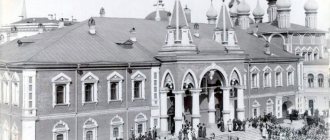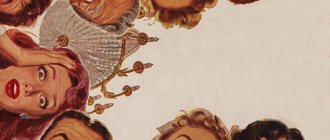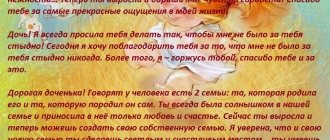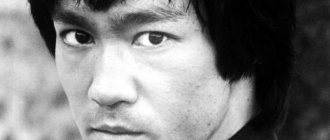What kind of lawyer was V.I. Lenin (His Best Defense Episodes)
Contrary to the claims of pseudo-historians, Lenin was not at all “a mediocre lawyer who did not win a single trial .
Vladimir Ulyanov in 1891
Ulyanov family - little Volodya Ulyanov bottom right
Just as once in the USSR (and sometimes now), prosecutors and investigators loved to decorate the interiors of their offices with Lenin’s quote: “ Lawyers must be taken with a tight rein and placed in a state of siege, because this intellectual bastard often plays dirty tricks. V.I.Lenin
».
But they hardly knew that Vladimir Ilyich, who graduated from the Faculty of Law of the Imperial St. Petersburg University in November 1891, had been in the legal community for almost four years, and knew it well from the inside .
University diploma from Ulyanov
Having received a first-degree law diploma, Vladimir Ulyanov went to Samara, where from January 1892 to August 1893 he worked in the Samara District Court as an assistant to sworn attorney A. N. Hardin, who sympathized with the socialists .
Andrei Nikolaevich Hardin (better known as a Russian chess player than a lawyer) did not live to see the revolution
Assistant sworn attorneys are “trainee lawyers” who had the right to independently conduct court cases, and were subordinate to both the sworn attorneys with whom they were registered and the district courts in which they worked.
Assistant sworn attorneys are “trainee lawyers” who had the right to independently conduct court cases.
As a rule, such lawyers conducted simple criminal cases “as assigned by the court” or those assigned to them by sworn attorneys in relation to clients who were unable to pay well . After working as an assistant to a sworn attorney for five years, the lawyer received the right to become a sworn attorney (a full-fledged lawyer) and choose cases that promise high fees. .
The building of the Samara District Court (now the Samara Regional Court) has changed little since Lenin's time
There is no exact information about exactly how many court cases were considered in the Samara District Court with the participation of Ulyanov. The archives of the Institute of Marxism-Leninism under the CPSU Central Committee contained 16 Leninist court cases in Samara (2 civil and 14 criminal) . Ulyanov won both civil cases (about inheritance and a trade dispute) in favor of his clients.
The archives of the Institute of Marxism-Leninism under the Central Committee of the CPSU kept 16 Lenin’s court cases in Samara (2 civil and 14 criminal)
In 14 criminal cases (Ulyanov often acted as a defender of several defendants in one case) he had the following results:
- for eight of Ulyanov’s clients , the court did not agree with the defense's arguments, but they all received a punishment less than what the prosecution requested ;
— for nine of his clients, Ulyanov achieved a reduction in the scope of the initial charges or a change in their qualification to a more lenient article , and, accordingly, a lenient punishment;
— one case was dismissed due to reconciliation of the parties ;
— the jury acquitted .
The jury acquitted five of Ulyanov’s clients
. There is no point in listing what these cases were - mostly petty theft, indecent behavior, battery and blasphemy . Of course, in minor criminal cases the court almost always gives less than the prosecution requests, but the overall result for a novice lawyer was not bad at all.
After a year and a half, in August 1893, Ulyanov moved from Samara to St. Petersburg, where on September 3 (15), 1893, on the recommendation of the Samara lawyer Hardin, he was enrolled as an assistant attorney at law to the St. Petersburg lawyer M. F. Volkenshtein, known for his progressive views.
Mikhail Filippovich Volkenstein did not take advantage of his “useful acquaintance” with Lenin, considering it best to escape from the USSR to Estonia in 1922
In February 1917, all the archives in the St. Petersburg District Court burned down, and it is now impossible to find out exactly what cases Vladimir Ulyanov conducted in St. Petersburg . But he had to conduct court cases, since they were assigned by the court, and by constantly refusing to conduct cases “as assigned by the court,” the assistant sworn attorney was inevitably expelled from the Council of Sworn Attorneys. Before his first conviction, no one deprived Ulyanov of his position as an assistant sworn attorney.
Police photograph of V. I. Ulyanov after his arrest, December 1895.
In St. Petersburg, Ulyanov quickly became involved with a bad company known as the “Union of Struggle for the Liberation of the Working Class ,” and was arrested in December 1895, after which he was exiled to the village of Shushenskoye. Then, in his questionnaires, Lenin always indicated that he worked as an assistant to a sworn attorney until December 1895.
Total - almost four years of legal practice , which (at least for the first year and a half), Lenin was very active and not bad at.
Total - almost four years of legal practice
All over the world V.I. Lenin is known as a fiery revolutionary and the creator of the world's first state of workers and peasants.
IN AND. Lenin - a fiery revolutionary and creator of the world's first state of workers and peasants
Nevertheless, like any person, Vladimir Ilyich had a civilian profession, namely, he was a lawyer. Moreover, Lenin emerged as a defender of the defendants no less talented than the organizer of the revolution.
The most interesting thing is that, in accordance with his revolutionary convictions, Vladimir Ilyich never defended the rich, even when he was offered substantial money for this.
He knew how to significantly reduce the sentence for the accused in an obviously losing case. Defender of the poor and unfortunate. The most interesting thing is that, in accordance with his revolutionary convictions, Vladimir Ilyich never defended the rich, even when he was offered substantial money for this.
Mainly V.I. Lenin acted as a state defender of representatives of the poor. And he was entrusted with the most difficult cases.
For example, Vasily Mulenkov was once tried for blasphemy. The crime in the Russian Empire was more than serious, implying a real prison term. According to the prosecution, the defendant drunkenly entered a grocery store and, in front of witnesses, “cursed God, the Most Holy Theotokos and the Most Holy Trinity.” Moreover, Mulenkov cheekily declared that the emperor does not know how and should not rule the country. Taken together, these offenses were punishable by 15 years of hard labor. The defendant's defense was extremely difficult, since several witnesses came forward against him. Moreover, at the trial they began to claim that Mulenkov was sober, deliberately cursing God and the Tsar. Vladimir Ilyich took up the matter actively. He called on the court to take into account the fact that the defendant’s life was full of hardships, and in order to forget, he drank too much, and this provoked him into daring speeches, spoken in a state of alcoholic intoxication and passion. Lenin also drew the court's attention to the fact that the witnesses in the person of the shop owner and his daughter were interested people, since the defendant owed them money . By declaring that Mulenkov was sober on the day of the crime, they want to slander him. At the same time, Lenin found eyewitnesses who confirmed that Mulenkov was drunk, and his entire behavior was nothing more than unrestrained emotions . To everything else, Vladimir Ilyich added that the defendant sang in the church choir on Sundays and could not deliberately offend God. As a result, thanks to the brilliant defense of the lawyer, instead of the 15 years of hard labor that the prosecutor asked for, Mulenkov received only one year .
Werewolves in uniform
It is interesting that in Tsarist Russia, as in our days, the police had a plan for solving crimes . It was difficult to carry out, so the gendarmes did not hesitate to fabricate false criminal cases . One day Lenin had to defend in court two peasants who stole a horse. According to the materials of the criminal case, gunner Yegor Tishkin and carpenter Ivan Zorin, while the driver Gorshkov was in a brothel, stole his horse in order to get money for it. They caught the robbers red-handed while selling an animal. Preparing for the trial, V.I. Lenin was not lazy and interviewed a large number of witnesses who saw the circumstances under which the theft took place . As a result, he established that there was no robbery at all . Policemen Komarovsky and Mashtakov, dressed in civilian clothes, invited the peasants into the tavern and gave them a decent drink. During the feast, the provocateurs suggested that they steal a horse and bring it to a secluded place to sell it to them. Tishkin and Zorin agreed. However, when they brought the horse to the appointed place, the instigators showed them their police IDs and arrested the would-be thieves . During the defense of V.I. Lenin made an emotional speech denouncing unscrupulous police officers who, for the sake of their official gain, pushed poor, hungry peasants into crime.
The main question that Lenin asked the court: why did the police, knowing about the crime, not stop it? Nevertheless, the crime was committed and required punishment.
The court sided with the lawyer and handed down the most lenient sentence possible. Tishkin was given 3.5 years of hard labor, and Zorin - only 9 months. Typically, defendants in similar cases received sentences several times longer. Unscrupulous police officers were fired from service.
Why didn't the police, knowing about the crime, stop it?
Source: What hopeless cases did lawyer Lenin win in court © Russian Seven russian7.ru
The inspiring and most beloved work of V.I. Lenin: Beethoven, Sonata No. 23 for listening and reflection:
APHORISMS Lenin (Ulyanov) Vladimir Ilyich
1. There is no abstract truth, truth is always concrete
2. Everything in the world has two sides
3. You must be able to take the moment into account and be bold in decisions
4. It’s better to tell the truth unsuccessfully than to keep silent about it if the matter is serious.
5. It is the youth who face the real task of creating a communist society.
6. Every extreme is bad; everything that is good and useful, taken to the extreme, can become and even, beyond a certain limit, necessarily becomes evil and harmful
7. Without revolutionary theory there can be no revolutionary movement
8. The rich and the crooks are two sides of the same coin.
9. Big words should not be thrown into the wind
10. War is a test of all the economic and organizational forces of every nation
11. In general, anger usually plays the worst role in politics.
12. Universal faith in revolution is already the beginning of revolution
13. The authority of the central institution must be based on moral and mental authority
14. If I know that I know little, I will achieve to know more.
15. Smart is not the one who doesn’t make mistakes. Smart is the one who can easily and quickly correct them
16. Words bind to deeds
17. We must be careful not to cross the line where gossip begins when criticizing shortcomings
18. In a personal sense, the difference between a traitor by weakness and a traitor by intent and calculation is very great; politically there is no difference
19. It is impossible to live in society and be free from society
20. Ideas become power when they capture the masses.
21. Indifference is the silent support of the one who is strong, the one who dominates
22. Equality under the law is not yet equality in life
23. Despair is characteristic of those who do not understand the causes of evil.
24. Of all the arts, cinema is the most important for us
25. Art belongs to the people. It must have its deepest roots in the very depths of the broad working masses. It must unite the feeling, thought and will of these masses, lift them up. It should awaken the artists in them and develop them
26. Capitalists are ready to sell us a rope with which we will hang them
27. A book is a huge power
28. Any state is oppression. Workers are obliged to fight even against the Soviet state - and at the same time cherish it like the apple of their eye
29. People have always been and will always be stupid victims of deception and self-deception in politics until they learn to look for the interests of certain classes behind any moral, religious, political, social phrases, statements, promises
30. No one is guilty if he was born a slave; but a slave who not only shuns the desire for his freedom, but justifies and embellishes his slavery, such a slave is a lackey and boor who evokes a legitimate feeling of indignation, contempt and disgust
31. We must fight religion. This is the ABC of all materialism and, therefore, Marxism. But Marxism is not materialism that stops at the ABC. Marxism goes further. He says: one must be able to fight religion, and for this one must materialistically explain the source of faith and religion among the masses
32. We must systematically undertake to ensure that the work of creating a press that does not amuse or fool the masses is carried out
33. You need to be able to work with the human material that is available. They won't give us other people
34. Don’t be afraid to admit your mistakes, don’t be afraid of repeated, repeated work to correct them - and we will be at the very top
35. Defeat is not as dangerous as the fear of admitting defeat.
36. Ignorance is less distant from the truth than prejudice
37. The deepest source of religious prejudice is poverty and darkness; we must fight this evil
38. Incontinence in sexual life is bourgeois: it is a sign of decay
39. In sexual life, not only what is given by nature is manifested, but also what is introduced by culture
40. Morality serves to raise human society higher
41. I also cannot vouch for the reliability and steadfastness in the struggle of those women whose personal romance is intertwined with politics, and for the men who run after every skirt and allow themselves to be entangled by every young woman. No, no, this doesn't fit with the revolution.
42. A person’s shortcomings are, as it were, a continuation of his advantages. But if advantages continue longer than necessary, are revealed not when necessary, and not where necessary, then they are shortcomings
43. Patriotism is one of the deepest feelings, consolidated by centuries and millennia of isolated fatherlands
44. As long as there is a state, there is no freedom. When there is freedom, there will be no state
45. Politics is the most concentrated expression of economics
46. Communism is Soviet power plus electrification of the entire country
47. We will work to introduce into the consciousness, into habit, into the everyday life of the masses the rule: “all for one and one for all”, the rule: “each according to his abilities, to each according to his needs”, to introduce gradually but steadily communist discipline and communist labor
48. Communism is the highest, against capitalist, labor productivity of voluntary, conscious, united workers using advanced technology
49. Communism is the highest stage of development of socialism, when people work out of the consciousness of the need to work for the common benefit
50. The revolution of the proletariat will completely destroy the division of society into classes, and consequently all social and political inequality
51. Political events are always very confusing and complex. They can be compared to a chain. To hold the entire chain, you need to cling to the main link
52. Less political chatter. Less intellectual reasoning. Closer to life
53. Let 90% of the Russian people die, if only 10% survive until the world revolution
54. Revolutions are not made with white gloves.
55. The most dangerous thing in war is to underestimate the enemy and rest in the fact that we are stronger
56. It’s easy to tell a lie. But sometimes it takes a lot of time to find the truth.
57. Talent is rare. It must be systematically and carefully maintained.
58. Talent should be encouraged
59. You must know how to deal with inventors, even if they are a little capricious.
60. We can't do without romance. An excess of it is better than a lack. We have always sympathized with the revolutionary romantics, even when we disagreed with them
61. Every fairy tale has elements of reality
62. Fantasy is a quality of greatest value
63. One must learn that one cannot live in modern society without a machine, without discipline—either one must overcome higher technology, or be crushed
64. An economist must always look forward, towards the progress of technology, otherwise he will immediately find himself lagging behind, because whoever does not want to look forward turns backwards to history
65. Ignorance is not an argument
66. The human mind has discovered many strange things in nature and will discover even more, thereby increasing its power over it
67. Only then will we learn to win when we are not afraid to admit our defeats and shortcomings
68. Honesty in politics is the result of strength, hypocrisy is the result of weakness.
69. Study, study and study!
70. The rise in the general cultural level of the masses will create that solid, healthy soil from which powerful, inexhaustible forces will grow for the development of art, science and technology
71. From living contemplation to abstract thinking and from it to practice - this is the dialectical path of knowledge of truth, knowledge of objective reality
72. Without a certain amount of independent work, the truth cannot be found in any serious question, and whoever is afraid of work deprives himself of the opportunity to find the truth
73. We must carefully study the sprouts of the new, pay close attention to them, and help their growth in every possible way
74. Honesty in politics is the result of strength, hypocrisy is the result of weakness.
75. Lawyers must be taken with a tight rein and placed in a state of siege, because this intellectual bastard often plays dirty tricks
76. Less is more
77. We rob the loot
78. Broken armies learn well
79. Religion is a kind of spiritual booze
80. The intelligentsia is not the brain of the nation, but shit
81. I love it when people swear, it means they know what they are doing and have a line
82. Throwing ringing phrases is a characteristic of the declassed petty-bourgeois intelligentsia... We must tell the masses the bitter truth simply, clearly, directly
83. We do not need rote learning, but we need to develop and improve the memory of every student with knowledge of basic facts
84. School outside of life, outside of politics is a lie and hypocrisy
85. First of all, we put forward the broadest public education and upbringing. It creates the soil for culture
86. Working people are drawn to knowledge because they need it for victory
87. You can always make a monstrously big mistake out of a small mistake if you insist on the mistake, if you substantiate it in depth, if you “carry it through to the end”
88. Don’t be afraid to admit your mistakes, don’t be afraid of repeated, repeated work to correct them - and we will be at the very top
89. By analyzing the mistakes of yesterday, we thereby learn to avoid mistakes today and tomorrow
90. Smart is not the one who doesn’t make mistakes. There are no such people and there cannot be. Smart is someone who makes mistakes that are not very significant, and who can correct them easily and quickly.
91. If we are not afraid to speak even the bitter and difficult truth directly, we will learn, we will certainly and unconditionally learn to overcome all and any difficulties
92. One must have the courage to look the unvarnished bitter truth straight in the face.
93. Don’t delude yourself with lies. It is harmful
94. Self-criticism is, of course, necessary for every living and vital party. There is nothing more vulgar than smug optimism
95. Man needs an ideal, but a human one, corresponding to nature, and not a supernatural one
96. Don’t philosophize, don’t put on airs about communism, don’t cover up negligence, idleness, Oblomovism, backwardness with great words
97. Check all your work so that words do not remain words, practical successes of economic construction
98. A person is judged not by what he says or thinks about himself, but by what he does
99. Labor has made of us the force that unites all workers
100. There are such winged words that with amazing accuracy express the essence of quite complex phenomena
101. I don’t know anything better than “Appassionata”, I’m ready to listen to it every day. Amazing, inhuman music. I always think with pride, perhaps naively: these are the miracles people can do!
102. Cooperation between representatives of science and workers - only such cooperation will be able to destroy all the oppression of poverty, disease, and dirt. And it will be done. No dark force can resist the union of representatives of science, the proletariat and technology
103. He who does nothing practical makes no mistakes
104. We have only one slogan, one motto: everyone who works has the right to enjoy the blessings of life. Parasites, parasites sucking the blood out of the working people should be deprived of these benefits. And we proclaim: everything is for the workers, everything is for the working people!
Lenin about the lawyer
“He lost the trials one after another” R. Payne “Lenin.
Life and death" A fairly common lie, which is very fond of fat-bellied lawyers of fat-bellied bourgeoisie and bandits. It is difficult for them to come to terms with the fact that someone at the age of 22, without a bribe, could quite successfully defend people in court. Moreover, Lenin defended not oligarchs or bandits, but peasants, i.e. the same “redneck” that causes the faces of the purists to squint.
We only know well the Samara period (March 5, 1892-May 12, 1893) of Lenin’s legal practice, from which 18 cases have survived. Almost all of them were won by Ilyich - the defendants were either found not guilty or received the minimum punishment provided for by the Penal Code. As an example, we can cite the very first trial involving young Vladimir Ulyanov.
On March 5, 1892, the case of tailor Vasily Mulenkov was heard, who was accused under Article 180 of the Penal Code. The crime for that time was serious: the accused in a public place (grocery store) “cursed God, the Mother of God, the Holy Trinity, then the sovereign emperor and his heir, saying that the sovereign was giving orders incorrectly.” What awaited Mulenkov for this? Nothing good, or rather deprivation of all rights of the estate and exile to hard labor for a period of 6 years. What did the blasphemous tailor get thanks to the efforts of Ulyanov, who was able to prove that his client was drunk, which means there were mitigating circumstances? One year in prison. Can it be considered a lost process? In my opinion it is impossible.
"IN AND. Ulyanov (Lenin) was expelled from the ranks of the legal profession: due to the fact that he ignored the duty (skimped on his duty) to defend the poor, did not develop standards for mandatory appearances in courts in the cases of such defendants” - this is another lie about Lenin circulating among lawyers. I have not been able to establish where the legs of this statement come from. But the facts contradict him.
So, Ulyanov left Samara and moved to St. Petersburg, where on September 3, 1893 he was enrolled as an assistant attorney. In December 1895, Vladimir Ilyich was arrested. On May 27, 1896, the chairman of the Council of Attorneys at Law, Lustich, asked the police department to “release assistant attorney Vl. Il. Ulyanov,” but this was denied to him. After his release from prison in February 1897, Lenin was sent into exile on a political charge, which automatically prohibited him from practicing law. But in the “Legal Calendar” for 1897, V. Ulyanov is still listed as assistant sworn attorneys. So when and why was Lenin expelled from the ranks of the legal profession? In any case, definitely not for ignoring his duties.
**When preparing the note, the following works were used: E. Skripilev “From the biography of V. I. Lenin” V. Loginov “Vladimir Lenin. Choosing a path" V. Safonov "Under supervision, but with the right to go about business"
leninism.su
Why is there a wild dominance of lawyers in Russia?
Zatulin: Medvedev wants to remain president of Russia
President Dmitry Medvedev intends to extend his stay in the Kremlin against the wishes of powerful Russian Prime Minister Vladimir Putin, an influential ruling party politician has told the Guardian. https://newsland.ru/news/detail/id/690601/cat/94/
M. Gorbachev was a party member by profession. But he betrayed everyone and the party first of all. Now it is thriving. B. Yeltsin was a builder who, at the instigation of the Americans, broke and destroyed everything. A sort of destroyer. He died, but his business is thriving - there are many devoted successors. True, someone in power began to expose him https://newsland.ru/news/detail/id/684602/cat/94/ of course with the wrong hands (not like N. Khrushchev - a corn specialist and builder of the second communist party - two parties in power).
Today, the main indicator of the effectiveness of the work of the State Duma is neither the state of living standards of the population, nor the level of social justice, nor the development of the country, but the NUMBER of laws adopted per unit of time.
Fulfilling the order of the Americans, the country switched to “democracy”, surpassing all countries in the number of political parties, which, having made their way into the State Duma, were fully supported by the Government. This has never happened before in the entire world. What kind of opposition is there! Now all political parties are parties of power. There is still a reshuffling coming in connection with the elections.
The main success of the government during the years of reverse “perestroika” is the stability of power. For more than 20 years, the country has been living according to the state ideology imposed on it selfishly by the Americans. And the fact that the country has not yet collapsed is whose merit? Of course, US political science scientists! Why are our political scientists silent? For which they pay a hefty fee. They were exempted from liability for professional errors by the Decree of Tsar Boris. Isn't it time to stop this vicious practice? There are THREE academies of social sciences in the country, but there is no point!
What's the matter? After all, there are no fools in power!
Why is the main call of those in power - “privatization of everything and everyone” - not brought to its logical conclusion - all the resources of the country of national importance are still “state”, that is, ORDERLESS? Money, science, the defense industry, territory, subsoil, land and waters, borders, law enforcement agencies, population and others have a miserable existence. Why are there no farm owners in the public sector of the economy? After all, the financial and property situation of the owner depends on the efficiency of his farm. Not like for officials of all ranks - from the chair. Is this why the proliferation of ranks is so rapid?
The country still has a very old political slogan – “AT ANY COST!” What kind of efficiency is there?
And the country’s external relations with its neighbors and distant countries are based either on economic considerations, or on the desire to assert the greatness of a helpless, pathetic country, or on the whims of the leaders. The betrayals of Libya, Belarus and everyone else in the name of pleasing the United States do not fit within any reasonable framework.
Politicians-lawyers clearly have no political knowledge - they are never politically literate. Like political parties, the authorities do not have a political program. After B. Yeltsin, there was not a single political reform in the country! An important indicator: after all, without political reform, not a single organizational (vertical of power), not a single economic or economic reform will give the desired result a priori. And the Government has a large sector of “organizational reforms”, and in addition there is also the Ministry of Economic Development. There is no development, but the Ministry is thriving.
And yet we are fighting against accidents, fires, terrorism, corruption, and now also the modernization of everything and everyone with some slogans and calls, renaming and dressing up. But we need political reform. But the name policy is not available. Or is there only one goal – stability of power? Other problems are of interest.
All the country's resources are being used to achieve stabilization of power. You don’t mind the money – the printing press works around the clock, seven days a week and seven days a week.
The country has lost all types of independence, fallen into all the political traps of developed countries, the population has been working for developed countries all these years. But the authorities don’t understand this?
We have a good example - everything is ok at Taburetkin! So maybe power can be transferred to homeless people or proletarians with cooks?
Lenin about lawyers
Letter to E.D. Stasova and comrades in Moscow prison. 1905
Dear friends! I received your request about tactics at the trial (from a letter from the Absolute and from a note “transmitted verbatim” through an unknown person). Absolute writes about 2 points of view. The note speaks of three groups - perhaps referring to the following three shades that I am trying to restore: 1) Deny the trial and outright boycott it. 2) Deny the trial and not take part in the judicial investigation. A lawyer should be invited only on the condition that he speaks exclusively about the insolvency of the court from the point of view of abstract law. In the final speech, state the profession de foi and demand a jury trial. 3) About the final word too. Use the court as a propaganda tool and, for this purpose, take part in the judicial investigation with the help of a lawyer. Show the lawlessness of the court and even call witnesses (prove an alibi, etc.). The next question is: should we only say that we are a social democrat by conviction, or should we recognize ourselves as a member of the Russian Social Democratic Labor Party? You write that a brochure is needed on this issue. I would not consider it convenient to publish a brochure right now, without indications of experience. Maybe we’ll touch on it in the newspaper sometime, on occasion. Maybe one of those sitting will write an article for the newspaper (5-8 thousand letters)? This would probably be the best way to start the discussion.
Personally, I have not yet formed a completely definite opinion and would prefer, before speaking decisively, to talk in more detail with my comrades who are sitting or have been at the trial. To start such a conversation, I will state my thoughts. Much depends, in my opinion, on what kind of trial it will be? Those. Is there an opportunity to use it for campaigning or is there no opportunity? If the former, then tactic No. 1 is no good; if the latter, then it is appropriate, but even then only after an open, definite, energetic protest and statement. If there is an opportunity to use the court for propaganda, then tactic No. 3 is desirable. A speech outlining the profession de foi is generally very desirable, very useful, in my opinion, and in most cases would have a chance of playing a propaganda role. Especially at the beginning of the government's use of the courts, the Social Democrats should have made a speech about the Social Democratic program and tactics. They say: it is inconvenient to admit that you are a member of a party, especially an organization; it is better to limit yourself to the statement that I am a social democrat by conviction. It seems to me that organizational relations should be explicitly mentioned in speech, i.e. to say that for obvious reasons I will not talk about my organizational relations, but I am a Social Democrat and I will talk about our party. Such a statement would have two benefits: it is directly and precisely stated that it is impossible to talk about organizational relations (i.e. whether he belonged to an organization, which one, etc.) and at the same time it is said about our party. This is necessary so that Social Democratic speeches at the trial become party speeches and statements, so that the agitation goes in favor of the party. In other words: I leave my formal organizational relations without consideration, I will remain silent about them, I will not speak formally on behalf of any organization, but, as a Social Democrat, I will talk to you about our party and ask you to take my statements as the experience of presenting precisely those social-democratic views that were carried out in all of our social-democratic literature, in such and such our brochures, leaflets, newspapers.
Question about a lawyer. Lawyers must be taken with a tight rein and placed in a state of siege, because this intellectual bastard often plays dirty tricks. Announce to them in advance: if you, son of a bitch, allow yourself even the slightest indecency or political opportunism (talk about underdevelopment, the infidelity of socialism, about infatuation, about the Social Democrats’ denial of violence, about the peaceful nature of their teaching and movement, etc. or at least something like that), then I, the defendant, will cut you off right there in public, call you a scoundrel, declare that I refuse such protection, etc. And carry out these threats. Only hire smart lawyers, don’t need others. Tell them in advance: to exclusively criticize and “catch” witnesses and the prosecutor on the issue of checking the facts and the frame-up of the accusation, to exclusively discredit the Shemyakin parties to the court. Even an intelligent liberal lawyer is extremely inclined to say or hint at the peaceful nature of the Social Democratic movement, at the recognition of its cultural role even by people like Ad. Vagner etc. All such attempts must be nipped in the bud. Lawyers are the most reactionary people, as Bebel seems to have said. Know your nest, cricket. Just be a lawyer, ridicule the witnesses for the prosecution and the prosecutor, at most contrast a kind of trial with a jury in a free country, but don’t touch the convictions of the defendant, don’t even dare to stutter about your assessment of his convictions and his actions. Because you, liberal, don’t understand these convictions so much that even praising them you won’t be able to do without vulgarities. Of course, all this can be presented to the lawyer not in Sobakevich’s way, but in a gentle, compliant, flexible and prudent manner. But it’s still better to be afraid of lawyers and not to believe them, especially if they say that they are Social Democrats and members of the party...
The question of participation in the judicial investigation is resolved, it seems to me, by the question of a lawyer. Inviting a lawyer means participating in the judicial investigation. Why not participate to catch witnesses and agitate against the court. Of course, one must be very careful not to fall into the tone of inappropriate justification, that's to say! It is best to immediately, before the judicial investigation, declare to the first questions of the chairman that I am a Social Democrat and in my speech I will tell you what this means. The specific decision on participation in the judicial investigation depends entirely on the circumstances: let’s assume that you are completely exposed, that the witnesses are telling the truth, that the whole essence of the accusation is in undoubted documents. Then, perhaps, there is no need to participate in the judicial investigation, but to pay all attention to the principled speech. If the facts are shaky, the intelligence witnesses are confused and lying, then it is hardly worth taking away propaganda material to expose the rigging of the trial. The case also depends on the defendants: if they are very tired, sick, tired, there are no tenacious people accustomed to “court negotiations” and verbal battles, then it may be more rational to refuse to participate in the judicial investigation, declare this and give all attention to the principled speech, which it is advisable to prepare in advance. In any case, we are talking about the principles, program and tactics of social democracy, about the labor movement, about socialist goals, about the uprising - the most important thing. I repeat in conclusion once again: these are my preliminary considerations, which should least of all be considered as an attempt to resolve the issue. We must wait for some indications from experience. And in developing this experience, the comrades will in most cases have to be guided by weighing specific circumstances and the instinct of a revolutionary...
Maria Aleksandrovna Ulyanova tried to invite lawyer Alexander Yakovlevich Passover (by the way, known for his millions in fees) to defend her son, but he was not allowed by the court. In the end, Alexander Ulyanov refused any lawyer.
And after a short time, Vladimir himself was arrested for participating in student riots, expelled from the university and sent to the estate of relatives in the village of Kokushkino, Laishevsky district, Kazan province, where he lived in the Ardashevs’ house and spent time until the winter of 1888-1889. Only in November 1891, after long independent studies, Vladimir Ulyanov passed the exams as an external student for a course at the Faculty of Law of the Imperial St. Petersburg University.
In 1892-1893, Vladimir Ulyanov worked as an assistant to Samara attorney (lawyer) N.A. Hardin, conducting most criminal cases, conducted “official defenses.” Hardin was known in Samara as a liberal public figure and educator. He was not afraid to accept the “brother of the hanged man” into his service.
By the way, Andrei Nikolaevich Hardin was known in his hometown as a lawyer, and throughout the country as an outstanding chess player who played mainly by correspondence. In particular, in the 1870s. he met in St. Petersburg with the strongest chess players in Russia, won games against Semyon Alapin, Mikhail Chigorin and others. In 1889-1892, assistant attorney Vladimir Ulyanov was also a participant in chess tournaments and consulting games held in Hardin’s house in Samara.
There are several versions explaining Vladimir Ulyanov’s desire to choose the legal profession as his profession. On the one hand, a recent political exile and the brother of someone executed for plotting an assassination attempt on the Tsar could hardly count on working as a judge, prosecutor or investigator. And Vladimir Ulyanov’s convictions did not allow him to become part of the repressive system of tsarism. What remained was the sworn legal profession, a “free profession.” It seems that working as a sworn attorney allowed V. Ulyanov to engage in legal advocacy, protect the interests of the most disadvantaged and unprotected sections of society, meet with them, talk, and try to understand their aspirations and hopes. Also, a free profession provided sufficient time to study the works of European and domestic revolutionaries, and allowed one to prepare oneself for the chosen path of a professional revolutionary. The legal profession made it possible to legally establish oneself in society and, finally, to obtain means for the existence of one’s family (except for the father’s pension, the family had no income).
According to I.B. Sternik, with whom it is difficult to disagree, V. Ulyanov “chose the legal profession as his occupation and because it allowed the use of the court as an institution in which, against the will of its leaders, the ulcers of the bourgeois-landowner system are objectively revealed and socio-political threads are publicly illuminated crimes; an institution capable of providing valuable factual and, therefore, irrefutable material for criticism of the then system” [7].
So, in January 1892, attorney at law
- N. Hardin filed a report with the Samara District Court with a request to enroll V.I. Ulyanov with his assistant, on January 30 (February 11), the general meeting of the branches of the Samara District Court granted this request. And it’s already March 5th
- I. Ulyanov first acted as a defense attorney in the case of peasant V.F. Mulenkov, accused of “blasphemy” and insulting “the Emperor and his heir.”
In a public place (in a grocery store) Mulenkov “abused God, the Mother of God, the Holy Trinity, then the sovereign emperor and his heir, saying that the sovereign was giving orders incorrectly.” Vladimir Ulyanov managed to challenge almost all the evidence in the case and instead of hard labor, Mulenkov’s sentence was commuted to 1 year in prison.
Subsequently, V.I. Ulyanov defended mainly poor people accused of theft (for which there were objective reasons - famine was raging in central Russia). In most cases, it was possible to commute the sentence (defense of peasants M.V. Oparin and T.I. Sakharov, accused of stealing 300 rubles from the kulak Murzin; M.S. Bamburov, accused of stealing various personal items).
In November 1892, the jury acquitted client V.I. Ulyanov retired soldier Vasily Krasnoselov, accused of stealing credit notes from cabbage merchant Surozhinkov.
V. Ulyanov handled another case, very difficult for a novice lawyer, with great benefit for his client, the head of the railway station A.N. Yazykov, accused of criminal negligence (due to an oversight at the Bezenchuk station, empty cars began to move and rolled, as a result of which a boy died and a worker was injured). Defender Ulyanov thoroughly studied the situation at the station; numerous violations were discovered, for which the station manager was not responsible, but which created an emergency situation. The defense attorney succeeded in reclassifying Yazykov’s charges to the third part of the same article: not “criminal negligence,” but “insufficient supervision” over the performance of subordinates’ duties. In his defense speech, V. Ulyanov introduced the jury to the personality of his client: Yazykov, a retired officer, showed himself heroically in the Russian-Turkish war, served blamelessly on the railway for many years, perceived the tragedy as his own grief and immediately took the blame and responsibility upon himself. The court agreed with the defense’s arguments, changed the charge against Yazykov and imposed the mildest punishment—a 100-ruble fine [2].
Soon, the young assistant of attorney V.I. Ulyanov became a fairly well-known personality in Samara, he was called the “peasant defender of rights.” Despite the fact that V. Ulyanov conducted mainly criminal cases (in the Samara District Court he conducted 14 criminal and 2 civil cases), his “patron” A.N. Hardin has repeatedly asserted that his assistant will eventually become an “outstanding civilist.” Thus, V. Ulyanov managed to win the case against S.I. Morochenkova to the Melekess Posad Council regarding the property of the deceased wife of a “reserve soldier”
- K. Morochenkova-Golovina - on the recognition of the plaintiff’s right of ownership of the estate land, as well as the case on the claim against the Samara tradesman I.S. Chekmarev to invalidate the purchase and sale transaction of orchards. Both cases were conducted by V. Ulyanov under the leadership of Hardin, but the young assistant attorney acted largely independently, and mainly the clients owed the success of their cases to him alone.
It should be noted that the “accusations” put forward in periodicals that Ulyanov “did not win a single trial” are not true. It is estimated that in 5 cases
- Ulyanov achieved acquittal for five of his clients; one case, with the assistance of a lawyer, was terminated by reconciliation of the parties; For
8 defendants managed to get their sentences reduced. We have already mentioned two won civil cases. This is a pretty good result for a novice lawyer.
In one of the cases, V. Ulyanov acted as an accuser of the Samara merchant Arefiev of arbitrariness. Arefiev, the owner of the crossing across the Volga, prevented the boat in which V. Ulyanov and his sister’s husband Mark Timofeevich Elizarov, later a famous revolutionary, People’s Commissar of Railways of the RSFSR, from crossing to the other side [5].
The case was widely covered in the Samara press, which accused Arefiev of the fact that he “considers the Volga his monopoly and does not allow anyone except his ship to transport passengers across it.” In this case, V. Ulyanov showed amazing drive and perseverance, won it (the tyrant merchant spent thirty days under arrest) and, as researchers note, showed those character traits for which we are familiar as a political figure. As Robert Payne, an American biographer of Lenin, noted when examining the Arefiev case, “Helpless in defense and strong in attack is already a characteristic of a person.” However, as we have already said, the “weakness” of Ulyanov the defender is also very relative [2].
As noted by A.I. Ulyanov-Elizarova, “the years of life in Samara and even earlier a year in Kazan were only preparatory for his work, which then spread so widely. But these years were, at the same time, perhaps the most important years in the life of Vladimir Ilyich: at this time his revolutionary physiognomy took shape and took final shape” [8].
But V. Ulyanov saw himself not only as a provincial lawyer, but as a revolutionary. And this activity required more space, and, of course, the move to the capital contributed to this. In 1893 V.I. Ulyanov arrived in St. Petersburg, where, on Hardin’s recommendation, he got a job as an assistant to the famous attorney at law M.F. Wolkenstein. In case No. 10070 of the Ministry of Justice of the Russian Empire for 1893, a dry registration entry appeared: “Ulyanov, Vladimir Ilyich, ca. legal course Sci. Recorded with M.F. Wolkenstein from September 3, 1893 in St. Petersburg." Mikhail Filippovich (Moses Fishelevich) Volkenshtein was one of the famous liberal lawyers who participated in high-profile trials. He and his brother Lev (also a lawyer) were classmates
A.P. Chekhov and left memories of him.
Their nephew Fyodor Akimovich was also a famous lawyer, the author of a number of monographs on law. F. Wolkenstein was the first husband of the poetess N.V. Krandievskaya (in her second marriage, married to the famous writer A.N. Tolstoy).
About the cases carried out by V.I. Ulyanov in the capital, no information has been preserved, since the building of the St. Petersburg District Court, which housed the archives of the Council of Sworn Attorneys, was burned during the February Revolution. But Ulyanov practiced law. In a letter to his relatives in December 1893, he reported that he had been promised a place in one legal consulate. It is unknown why the promise was not fulfilled. In October 1895, V. Ulyanov wrote that he spent about 10 rubles from his budget on one court case that he may have had to conduct. In a letter to his mother in December of the same year, he reported that cousin D.A. Ardashev “offers him to take on the matter of approving the rights of his relative’s inheritance, but we have not yet fully agreed.” Subsequently, in one of the questionnaires, Lenin directly indicates that he worked as a lawyer until December 1895. In police documents dated 1894, it is written that this year V.I. Ulyanov “was engaged in advocacy.” Name V.I. Ulyanov is mentioned in the “Legal Calendar” in the list of assistant sworn attorneys for 1894, 1895 and even 1897. (in the latter case, without specifying the address). Ulyanov promptly and correctly submitted reports to the Council of Sworn Attorneys, including for 1893. According to the memoirs of M.A. Silvina, Ulyanov mainly handled the cases of the poor, workers appointed by the court for a small fee. V. Ulyanov attended the Council of Sworn Attorneys, conferences of assistant sworn attorneys, which took place at the office of the Congress of Justices of the Peace for the former consultation, and conducted court cases of workers. In the questionnaire of the delegate of the X Congress of the RCP (b) on March 7, 1921, in the column “former profession” Lenin indicated: “assistant attorney 1891-1895, journalist 1893-1917.” Law practice
IN AND. Ulyanov worked until his arrest
December 9, 1895, and he was expelled from the jury after the verdict was passed and sent into exile in 1898.
There is information that V. Ulyanov received visitors in his apartment at 7 Bolshoi Kazachy Lane.
Despite the short-term work as a sworn attorney for Volkenshtein, the latter turned to the Chairman of the Council of Sworn Attorneys of St. Petersburg V.O. for the defense of the defendant V. Ulyanov. Lustikha. Both lawyers expressed a desire to take bail for their colleague under investigation, but their petition was not heard.
Later, Vladimir Ilyich did not forget his “former profession”; while in exile in Shushenskoye, he secretly from the authorities advised local peasants and fellow exiles (in particular, in the Basil case), and drew up legal documents in their interests. In 1922, Vladimir Ilyich recalled: “... when I was in exile in Siberia, I had to be a lawyer. I was an underground lawyer, because I was an administrative exile, and this was prohibited, but since there were no others, people came to me and told me about some cases.”
E.A. Skripilev says that already in exile V.I. Lenin used his legal knowledge to help his comrades. In 1907, he helped avoid the extradition of political emigrant N.A. to the tsarist government. Semashko, who then lived in Geneva. IN AND. Lenin secured an invitation for Semashko to a prominent lawyer, whose candidacy was nominated for president of the republic. Lenin also ensured that Semashko was interrogated. Through the efforts of Lenin, Semashko was soon released. “This is how Comrade Lenin saved my life,” wrote Semashko, later the first People’s Commissar of Health of the RSFSR [6].
However, there is no doubt that V.I. Ulyanov became disillusioned with the bourgeois jury and believed that such work would not lead to the speedy liberation of the working class. His very offensive words about lawyers are known, although they are often not quoted in full: “Lawyers must be taken with a tight rein and placed in a state of siege, because this intellectual bastard often plays dirty tricks. Announce to them in advance: if you, son of a bitch, allow yourself even the slightest indecency or political opportunism (talk about underdevelopment, the infidelity of socialism, about infatuation, about the Social Democrats’ denial of violence, about the peaceful nature of their teaching and movement, etc. or at least something similar), then I, the defendant, will cut you off right there in public, call you a scoundrel, declare that I refuse such a defense, etc. And carry out these threats. Only hire smart lawyers, don’t need others. Tell them in advance: to exclusively criticize and “catch” witnesses and the prosecutor on the issue of checking the facts and the frame-up of the accusation, to exclusively discredit the Shemyakin parties to the court. Even an intelligent liberal lawyer is extremely inclined to say or hint at the peaceful nature of the Social Democratic movement, at the recognition of its cultural role even by people like Ad. Vagner etc., all such attempts must be nipped in the bud. Lawyers are the most reactionary people, as Bebel seems to have said. Know your nest, cricket. Just be a lawyer, ridicule the witnesses for the prosecution and the prosecutor, at most contrast a kind of trial with a jury in a free country, but don’t touch the convictions of the defendant, don’t even dare to stutter about your assessment of his convictions and his actions. Because you, a liberal, don’t understand these convictions so much that even praising them, you won’t be able to do without vulgarities. Of course, all this can be presented to the lawyer not in Sobakevich’s way, but in a gentle, compliant, flexible and prudent manner. But it’s still better to be afraid of lawyers and not to believe them, especially if they say that they are Social Democrats and members of the party...” [2].
These words were written for a specific reason - the defense of accused workers during the years of the first Russian revolution and, despite the obvious negative meaning, they still reflect a specific political situation.
Article bibliographic list
- Mirzoev G.B. Science and advocacy // Scientific works of the Russian Academy of Advocacy and Notariat. - 2013. - No. 2 (29). — P. 5-11.
- Payne R. Lenin. Life and death. - M., 2002. - (ZhZL).
- Ragulin A.V. Institutionalization of professional rights of a defense lawyer in Soviet legislation // New legal journal. - 2012. - No. 3. - P. 101-110.
- Ragulin A.V. Formation of the science of advocacy in Russia // Eurasian Advocacy. — 2013. — No. 2 (3). — P. 128-140.
- Savich A.S., Yakovlev E.N. Interesting about the legal profession. - St. Petersburg, 2005.
- Skripilev E. From the biography of V.I. Lenin (On the legal activity of V.I. Lenin) // News of higher educational institutions. Jurisprudence. - 1961. - No. 3. - P. 111-125.
- Sternik I.B. Legal activity
- Shakhmatov V. About legal activities
- I. Lenin. - M., 1979.
References (transliterated)
- Mirzoev GB Nauka i advokatura // Uchenye trudy Rossijskoj akademii advokatury i notariata. - 2013. - No. 2 (29). — P. 5-11.
- Pein R. Lenin. Zhizn' i death'. - M., 2002. - (ZhZL).
- Ragulin AV Institucionalizacija professional'nyh prav advokata-zashhitnika v sovetskom zakonodatel'stve // Novyj juridicheskij zhurnal. - 2012. - No. 3. - P. 101-110.
- Ragulin AV Formirovanie nauki ob advokature v Rossii // Evrazijskaja advokatura. — 2013. — No. 2 (3). —
- 128-140.
- Savich AS, Jakovlev EN Ob advokature — interesno. - SPb., 2005.
- Skripilev E. Iz biografii VI Lenina (O juridicheskoj dejatel'nosti VI Lenina) // Izvestija vysshih uchebnyh zavedenij. Legal information. - 1961. - No. 3. - S. 111-125.
- Sternik IB Juridicheskaja dejatel'nost' VI Ul'janova (Lenina). - Tashkent: Uzbekistan, 1969.
- Shahmatov V. O juridicheskoj dejatel'nosti VI Lenina. - M., 1979.









